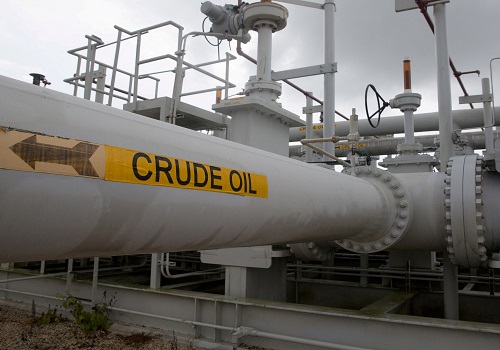Oil prices set for weekly fall on stockpile releases

LONDON -Oil prices were stable on Friday but remained on course for a second weekly fall after countries announced plans to release crude from their strategic stocks.
Brent crude futures were down 30 cents, or 0.3%, at $100.28 a barrel by 1333 GMT. U.S. West Texas Intermediate (WTI) crude futures fell 4 cents to $95.99.
Both contracts are set to fall for a second consecutive week, with Brent on course for a 3.7% slide and WTI for a 3% decline.
Member nations of the International Energy Agency (IEA) will release 60 million barrels over the next six months, with the United States matching that amount as part of its 180 million barrel release announced in March.
The release could deter producers, including the Organization of the Petroleum Exporting Countries (OPEC) and U.S. shale producers, from accelerating output increases even with oil prices around $100 a barrel, ANZ Research analysts said in a note.
PVM analyst Stephen Brennock, meanwhile, questioned the impact of the reserves being released.
"Despite these unprecedented volumes, doubts remain whether this incoming flood of supply will address the shortfall in Russian crude," he said.
JPMorgan expects the reserves release to "go a long way in the short term" to offsetting the 1 million barrels per day of Russian oil supply it expects to remain permanently offline.
"However, looking forward to 2023 and beyond, global producers will likely need to ramp up investment to both fill the Russia-sized gap in supply and restock IEA strategic reserves," the bank said in a note.
While Russia has found Asian buyers, Western buyers are shunning cargoes since the start of the conflict in Ukraine.
Russia's production of oil and gas condensate fell to 10.52 million barrels per day (bpd) for April 1-6 from a March average of 11.01 million bpd, two sources familiar with the data told Reuters on Thursday.
The U.S. Congress voted to ban Russian oil on Thursday, while the European Union is considering a ban.
But demand uncertainties kept a lid on prices Friday after Shanghai extended its lockdown to contend with fast rising COVID-19 infections.
Further pressure came from the strengthening U.S. dollar, after signals that the U.S. Federal Reserve could raise the federal funds rate another 3 percentage points by the end of the year.




















